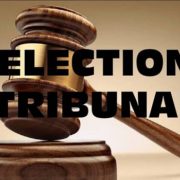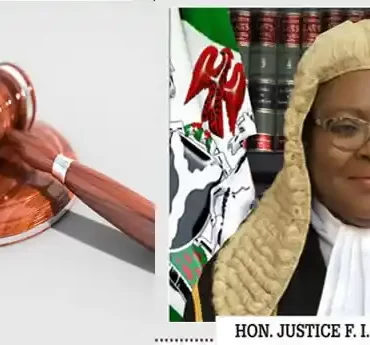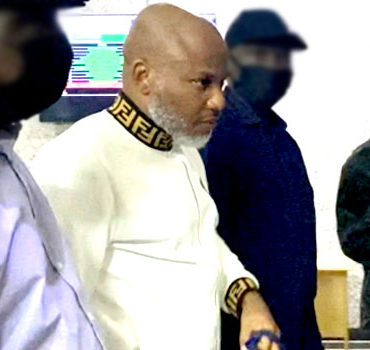Subtotal: ₦500
EFCC moves to stop execution of ruling on forfeited 14 properties, N400m linked to Yahaya Bello

Lawyard is a legal media and services platform that provides…
The Economic and Financial Crimes Commission (EFCC) on Monday, May 15, filed a motion to stop the execution of a court ruling which stopped the forfeiture of 14 properties and the sum of N400 million linked to Kogi State governor, Yahaya Bello.
Justice Nicholas Oweibo of a Lagos Federal High Court, on April 26, struck out a suit by the EFCC seeking the final forfeiture of the properties and sum on the grounds of provisions of Section 308(1) of the 1999 Constitution.
Striking out the suit, the judge declared: “Given Section 308 of the Constitution, which provides immunity to a sitting governor from any civil/ criminal prosecution, the court lacks jurisdiction to entertain the matter.”
At a sitting on Monday, counsel for the EFCC, Rotimi Oyedepo, SAN, informed the court of an application dated April 27, 2023, seeking a stay of execution of the ruling pending the outcome of the appeal on the case.
Responding, counsel to the respondent, Akoh Ocheni, filed an application seeking to strike out the application for stay of execution by the EFCC.
Justice Oweibo adjourned the matter till further notice.
In his motion against the final forfeiture application, Bello based argued that the listed property was not obtained via the commission of an illegal act because it was acquired before he was elected governor of Kogi State and could not have been proceeds of public funds.
He added that the EFCC cannot file any civil or criminal charges against him because of Section 308 of the Constitution.
The governor also argued that the EFCC’s lawsuit was filed illegally on the grounds that the anti-graft agency was blatantly disobeying a state high court ruling prohibiting it from looking into any accounts of the Kogi State Government until the Motion on Notice was decided.
He claimed that the Commission made false statements to obtain the interim forfeiture order.
Bello added that because the disputed properties were purchased before he was elected governor of Kogi State, the Proceeds of Crime Act could not be applied retroactively.
He claimed that the Supreme Court was hearing arguments over the legality of the Proceeds of Crime Act 2022.
Regarding jurisdiction, he said the individual concerned is based in Lokoja, and the properties named are in Abuja, Kogi, and the United Arab Emirates (UAE).
He added that the suit should have been filed in either Abuja or Kogi State. Therefore, he requested that the lawsuit be dismissed for lack of jurisdiction.
Lawyard is a legal media and services platform that provides enlightenment and access to legal services to members of the public (individuals and businesses) while also availing lawyers of needed information on new trends and resources in various areas of practice.

 INFRASTRUCTURE CONCESSION REGULATORY COMMISSION ESTABLISHMENT ETC ACT 2005
INFRASTRUCTURE CONCESSION REGULATORY COMMISSION ESTABLISHMENT ETC ACT 2005 










